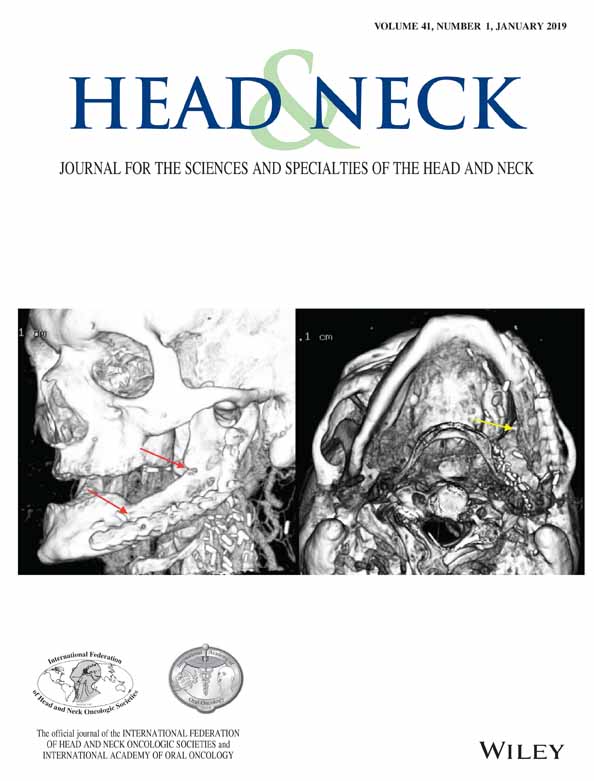Different outcomes in sporadic versus familial medullary thyroid cancer
Abstract
Background
Medullary thyroid carcinoma (MTC) has varying clinical course with familial cases (fMTC) diagnosed earlier than sporadic MTC (spMTC).
Methods
A total of 273 MTCs (familial: n = 110 [40.3%], males: 38.5%) were followed for 1-35 years (median 5.0 years). Fifty one of the familial cases were operated because of positive findings at genetic screening. Disease extent at diagnosis and follow-up was recorded.
Results
Mean age at diagnosis was: fMTC = 33.85 ± 16.5 years (range 4-74) and spMTC = 52.6 ± 14.0 years (range 16-81, P < .001). This difference remained when genetic screening cases were excluded. fMTCs had more frequently multifocality, smaller size, and more favorable stage at diagnosis (stages I and II: 60.9% vs 47.9%, stage III: 30.0% vs 23.9%, stage IV: 9.1% vs 28.9%, P = .01). fMTC had lower preoperative and postoperative calcitonin, more frequently remission (59.1% vs 47.2%) and less frequently progressive disease (8.2% vs 35.0%, P < .001). After excluding genetic screening cases, no difference in stage at diagnosis was observed. Outcome was more favorable in fMTC compared to sporadic (P = .002); the 10-year probability of lack of progression of disease differed significantly between fMTCs and spMTCs (86.4% vs 65.0%, P < .001).
Conclusion
After excluding genetic screening cases, although stage at diagnosis is similar, disease outcome remains worse in sporadic compared to fMTCs.
CONFLICT OF INTEREST
The authors declare that they have no conflicts of interest with the contents of this article.




